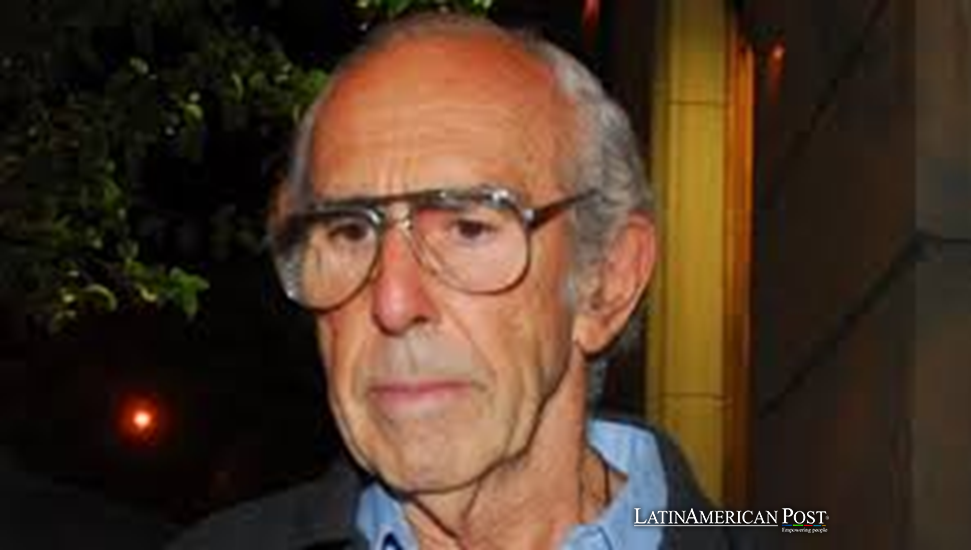Ricardo Barreda: The Haunting Murderer that Divided Argentina

In 1992, Ricardo Barreda, a dentist from Buenos Aires, shocked Argentina by murdering his wife, two daughters, and mother-in-law. His case sparked a nationwide debate about his motives, leaving a polarizing legacy in the nation’s history.
The Shocking Crime: A Day That Changed Everything
On the morning of November 15, 1992, the quiet city of La Plata, Buenos Aires, was forever altered by a horrifying crime. Ricardo Barreda, a well-known dentist, ended the lives of his wife, Gladys Mac Donald, his two daughters, Adriana and Cecilia, and his mother-in-law, Elena Arreche. The tragedy sent shockwaves throughout Argentina, turning Barreda into one of the country’s most infamous criminals.
Barreda’s explanation for the killings was rooted in years of alleged abuse and humiliation. He claimed that his family constantly belittled him, calling him names and diminishing his dignity. According to Barreda, the tension had built up over the years, eventually reaching a boiling point on that fateful day when he snapped. While some believe he was pushed to his breaking point, others question whether there were darker, unspoken reasons behind his actions.
The details of the crime remain chilling. Barreda first shot his wife at close range in the kitchen. His daughter Cecilia, who was nearby, became the next target, and Adriana, hearing the gunfire, came running down the stairs only to be killed before she could reach the bottom. The final victim was his elderly mother-in-law, Elena, who was shot twice in the back. Barreda then staged the scene to look like a robbery gone wrong, scattering the empty shells and leaving signs of forced entry. He went on to meet his mistress, Hilda Bono, and spent time at a bar before finally calling the police to report the “armed robbery.” During the investigation, his story began to unravel quickly, and Barreda eventually confessed.
A Gripping Confession and Polarizing Reaction
Barreda’s confession stunned the nation. In it, he wrote of a life of insult, mockery, and ridicule that propelled him to the impossible. But the way he expressed it did not stop people from wondering whether he was begging for revenge or was a man suffering from decades of emotional and psychological torture. The national outcry surrounded his tale, and no one believed that his accusation of abuse would justify such violence.
The case was one of the most divisive in Argentinean history. On the one hand, Barreda was viewed as a violent killer, someone who didn’t know when he was angry, and killed four innocents in a heartbeat. Others pity him, convinced that he had come to this awful end because of years of psychological abuse and emotional suffering. It was a slugfest throughout the trial, with witnesses and psychologists differing opinions on Barreda’s character and motivations.
For some, he was a man at his breaking point; for others, he was a brutal man who felt a sense of entitlement and anger. It was his trial and his incarceration that had left many wondering what it meant to be a victim or even a villain. Barreda’s case stayed with the Argentine public, distancing them from one another and leaving a sticky history.
Parole and Public Debate: The Aftermath of the Murders
After serving years in prison, Barreda was granted house arrest in 2008, sparking new controversy. The public outcry intensified when he was paroled in 2011. For others, this was an act of mercy towards an older man with years of hurt. It was, for others, an invocation to the memory of those who had been ruthlessly murdered.
Barreda’s release put the case back on the national map, and the public and media watched his move. He was made the subject of films, plays, and documentaries about men, family violence, and broken families. Though he was under house arrest, Barreda had not gone undiscovered. Others regarded him as a sad man whose behavior was gruesome but the product of decades of psychological tyranny. To others, he was a complicit murderer who had not received a full trial.
Legacy and Reflection: Barreda’s Impact on Argentine Society
Years later, the case of Ricardo Barreda still shakes Argentinian hearts. In the eyes of most, he is an image of extreme violence and unrestrained anger, someone who killed four without guilt. For other people, Barreda is the result of unimaginable pain and stress whose death cannot be rationalized. It’s still a tragic case of the dangers of anger that can be unleashed and family dynamics.
The case of Barreda has sparked a broader discussion about masculinity, mental illness, and domestic violence. That Barreda was both a victim and a perpetrator raise difficult questions about our understanding of violence and the psychological toll of dysfunctional families. In Argentina, his case has become a focal point for considering how to prevent such tragedies and how society can better support victims of emotional and psychological abuse.
Also read: Unraveling One of Colombia’s Most Perplexing True Crime Case: The Mystery of Luis Andrés Colmenares
Though Barreda remains a divisive figure in Argentine history, his case serves as a sobering reminder that the line between victim and perpetrator is often not as straightforward as it seems. Behind every tragedy lies a complex web of emotions, history, and relationship factors that can make sense of such unspeakable acts elusive. The legacy of Barreda’s crime continues to resonate in Argentine society, where the debate over his actions and motivations lingers.





